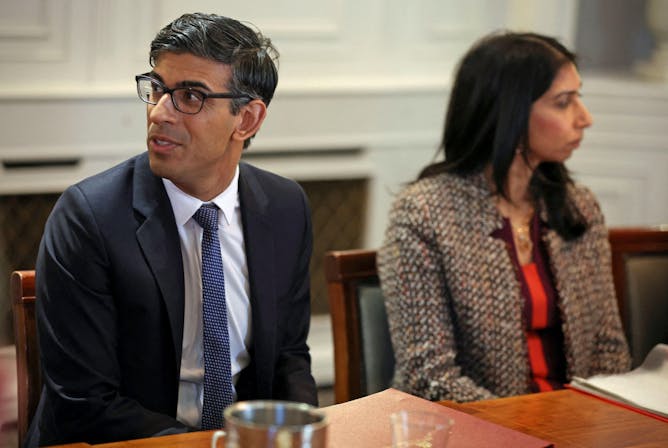|
Most of us were brought up being told to “use a bit of good old common sense”, generally in situations where we may have done something that had involved making a stupid choice. And very often this was good advice – but not always. For example, your common sense might be my stupid idea and vice versa.
The picture has become even more muddled as politicians have appropriated the term to differentiate their ideas from those they dismiss as coming from “experts” or “elites”. But what is common sense really, and why is it now used so often to shut down debate? A psychologist explains.
The stresses of modern life and the seeming constant presence of mobile phones, smartwatches and other digital technology in our lives is severely affecting many people’s sleep patterns. So much so that the development of “sleep technology” and new drugs to regulate our slumber have become a major growth area. Here’s how technology is permeating our sleep, and what the future may hold.
According to the latest opinion polls, if an election were to be held tomorrow, Rishi Sunak’s Conservatives would be in for a serious trouncing. So what will the Tory party look like in the event of a serious defeat in 2024? Our political analysts examines three possible scenarios.
|

|
Miriam Frankel
Science Editor
|
|

Common sense is broadly defined as a shared set of beliefs and approaches to thinking about the world.
elenabsl/Shutterstock
Magda Osman, Cambridge Judge Business School
We often view common sense as an authority of collective knowledge that is universal and constant.
|

metamorworks/Shutterstock
Catherine Coveney, Loughborough University; Eric L Hsu, University of South Australia
Wakefulness drugs like Modafinil point to a new frontier of technosleep driven by personal goals rather than medical need.
|

PA/Alamy/Phil Noble
Tim Bale, Queen Mary University of London; David Jeffery, University of Liverpool
Penny Mordaunt’s seat is at risk while leadership hopeful Kemi Badenoch would be sitting pretty.
|
Politics + Society
|
-
Balki Begumhan Bayhan, Coventry University
Turkey’s president has solidified his political power by allying with ultranationalist groups.
-
Stefan Wolff, University of Birmingham
Once again ethnic tensions have boiled over in Kosovo.
-
Juan Luis Manfredi, Universidad de Castilla-La Mancha
Regional elections in Spain and the success of the right has made Pedro Sánchez bring forward general elections to the 23rd of July.
|
|
Arts + Culture
|
-
Sarah Tatton, Sheffield Hallam University
Much of the media coverage of Tina Turner’s victim-survivor status overlooks the fact that as a black woman she walked a fine line in speaking publicly about her experiences.
-
Gill Jamieson, University of the West of Scotland
In the end, nobody gets what they want – but they do, arguably, all get what they deserve.
-
Sarthak Mondal, University of Portsmouth
City have become ‘hybrid monsters’, who can play with any formation and any player combination and still consistently challenge for European honours.
|
|
Business + Economy
|
-
Zara Whysall, Nottingham Trent University
In the rapidly changing, ambiguous and unpredictable world of work, future leaders must be able to learn fast.
|
|
Environment
|
-
Alan Thomas Kennedy-Asser, University of Bristol; Dann Mitchell, University of Bristol; Eunice Lo, University of Bristol
A heatwave isn’t just about the temperature.
-
Matthew Derry, Aston University
Confusion about what should and shouldn’t be recycled? You’re not alone – and it’s causing some people to ignore recycling altogether.
|
|
Science + Technology
|
-
Nello Cristianini, University of Bath
The latest warning by AI experts is bound to create alarm, so its authors should be more specific and clarify their concerns.
|
|
|
|
| |
|
|
|
|
| |
| |
| |
| |
| |
|
|